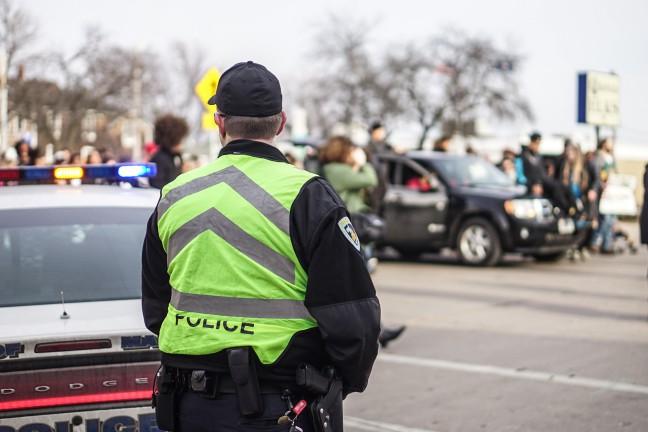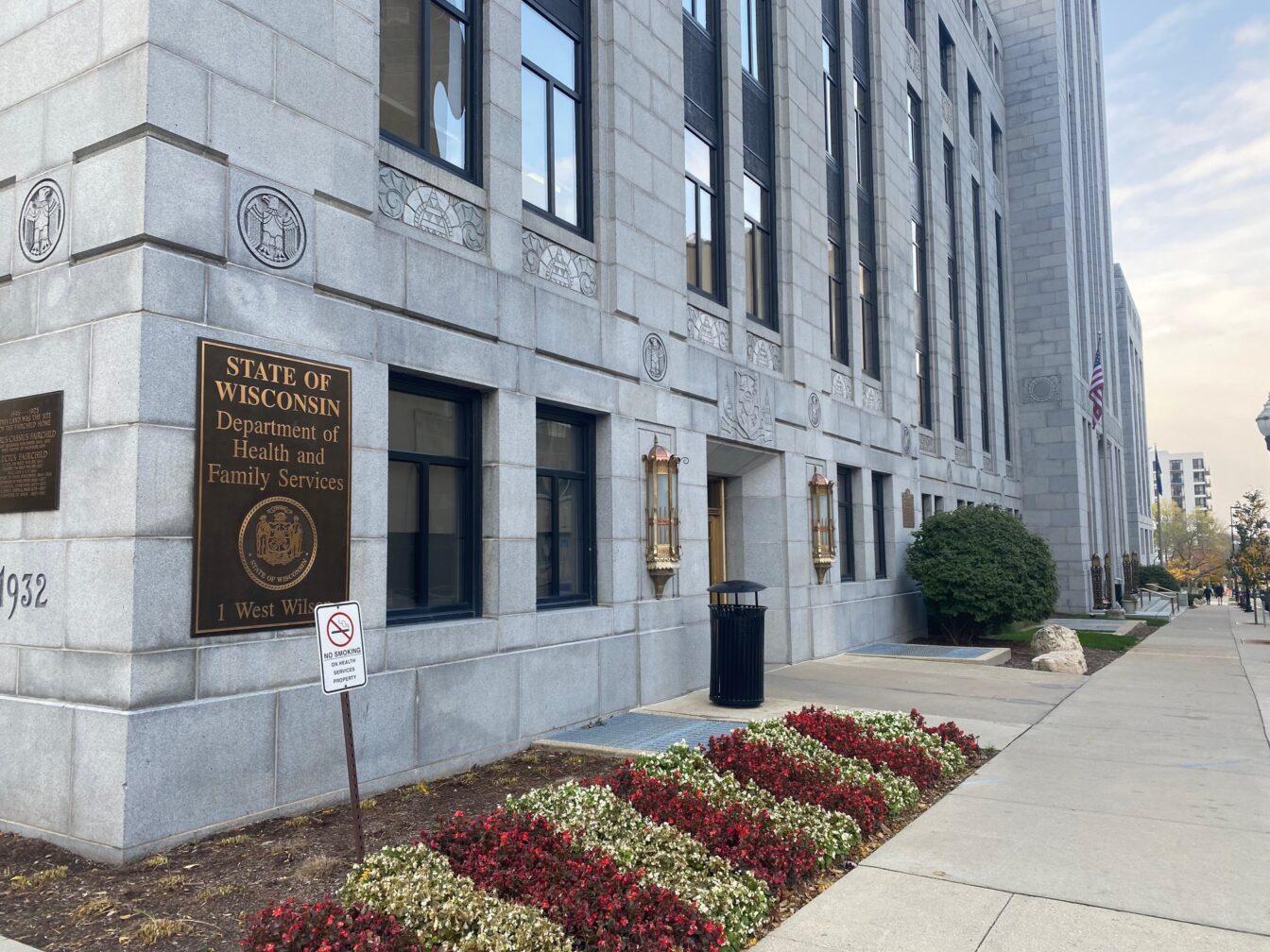State Rep. Chris Taylor was stopped at a Madison gas station on the night of March 6, 2015 when she heard gunshots.
They were the shots fired by Madison police officer Matt Kenny that killed biracial 19-year-old Tony Robinson. In the coming weeks, a law Taylor herself co-authored in the state Legislature would be put to the test as law enforcement — not from the Madison Police Department, but from the state Department of Justice — began investigating the incident.
Connecticut and Missouri have since replicated the first-of-its-kind 2014 law, which both law enforcement and their critics say has been successful. But some say lawmakers can improve the process to make it even more independent and transparent.
That’s why Taylor is looking to introduce changes she called “natural next steps” to make investigations into officer-involved shootings more independent. One includes ensuring a special prosecutor, instead of a local district attorney, would get to decide whether to bring charges against the officer. Taylor said that would help because local district attorneys often work with the police departments they investigate.
“Bringing in the outside investigators was just the first step in improving this process of what occurs when there’s an officer-involved death,” Taylor said. “It was never intended to be the last step.”
The law requires at least two outside officers investigate police-involved deaths and submit their findings to the district attorney. If the district attorney decides not to indict the officer, investigators are required to make their report public, and the affected family must be told how to file complaints if they don’t agree with the decision.
Two years ago, Dane County District Attorney Ismael Ozanne decided not to indict Kenny in a nationally viewed press conference. Robinson’s family then filed a federal civil rights lawsuit, which the family settled last month for $3.35 million, the largest settlement of its kind in state history.

The DOJ isn’t required to investigate every officer-involved shooting — departments choose the agency that investigates cases in which one of their officers shoots a civilian. But the vast majority go to the DOJ’s Division of Criminal Investigation, according to Jim Palmer, executive director of the Wisconsin Professional Police Association. The DOJ now lists 22 completed investigations on its website, including Robinson’s.
Palmer said the independent review process has been a success. Not only has it gotten positive community responses, but some police departments employ the independent review for “the vast majority” of officer-involved shootings that don’t result in death, which the law doesn’t require.
“We think it has worked extraordinarily well,” he said.
Racial justice group calls for officer who shot Tony Robinson to be fired
A few cases, however, have received public criticism. A 2016 Stanford University report flagged those cases as missteps that can shatter public trust of the police.
In Neenah, Wisconsin, for example, police fatally shot Michael Funk as he fled a hostage situation in December of 2015. DCI took the lead on the investigation, but before it began, the Neenah police chief issued a statement justifying the shooting. He claimed Funk had disobeyed officers’ orders to drop his weapon.
“We want to have a balance. We want to have a relationship that can give us all faith.”
Dashboard camera footage later revealed officers never directed Funk to drop his gun.
In Milwaukee, when a police officer shot and killed Dontre Hamilton in April 2014, the public raised concerns because DCI investigators looking into the case were formerly part of the Milwaukee Police Department.
And in Madison, Robinson’s family lawyers held a news conference this month revealing additional evidence they said raised inconsistencies in Kenny’s story.

David Owens, one of the Robinson family’s lawyers, said it’s issues like this that cause a lack of public trust for officer-involved shooting investigations. It’s tough for officers to stay impartial when they’re investigating people like themselves, even if they’re not from the same department, Owens said.
“They may still be working on the same playing field and working on things through the same lens [as local law enforcement would],” Owens said.
That’s why Owens suggested a citizen board help with the investigation. In Brooklyn, the district attorney set up a conviction integrity unit — a panel made up of law enforcement and members of the community, which reviews cases of people who have been convicted of crimes. The unit has exonerated 22 people since its start in 2014, according to the Brooklyn district attorney’s office.
Owens said setting up a similar citizen review process for officer-involved shooting deaths would help bolster public trust among community members who feel police have overstepped their bounds.
“We want to have a balance,” Owens said. “We want to have a relationship that can give us all faith.”
Two years later: Tony Robinson’s death serves as reminder for community to come together
But Palmer, the police association executive director, said he doesn’t see a viable way for citizens to be involved with the actual investigation process. They already play an important oversight role in Wisconsin, he said, pointing to local police and fire commissions that include citizens.
But that idea just doesn’t work for investigations, Palmer said.
“I think criminal investigations are something that are best performed by experts in the appropriate field,” Palmer said.
Taylor wants to introduce legislation that would require those investigating officer-involved shooting deaths to not have recently worked with the force they’re investigating, to avoid more situations like Hamilton’s.
But Palmer and the WPPA aren’t as supportive of Taylor’s suggestion to hand the decision of whether or not to indict police officers who fatally shoot civilians to special prosecutors, rather than district attorneys. He said a change like that would politicize what he now describes as a “very apolitical” process. Deciding who chooses the prosecutor and who the prosecutor is would introduce political layers that Palmer said don’t have a place in the system.
Palmer also said while district attorneys and law enforcement work in the same criminal justice system, they don’t work closely enough to cause a conflict of interest.
“To say that they’re close companions is kind of out of touch,” Palmer said.
Committee plans to use social media to ease relations between community, police
But law enforcement and critics agree there can be some logistical challenges in the independent investigation process. In the crucial first hours of an investigation, it likely won’t be the outside investigators who will be the first responders to an incident, but rather officers from the local law enforcement agency.
I think there’ll have to be attention paid by the Legislature that this important area in the Department of Justice is adequately funded
The Stanford report noted some parts of the state are located nearly 200 miles from the nearest DCI office, so it can take hours until the appropriate officers get to the scene. Waiting for the appropriate officers can be detrimental in collecting information from witnesses as their memories begin to fade.
Palmer said that’s where the part of the law that lets departments pick the outside agency that investigates them becomes important. While most use the DOJ, some have instead turned to neighboring law enforcement agencies that can get to the scene sooner, Palmer said.
He also said simply having more manpower can help ease this issue.
“I think there’ll have to be attention paid by the Legislature that this important area in the Department of Justice is adequately funded,” Palmer said.
City Council seeks to mend community-police relations through new subcommittee
But the inherent difficulty, Owens and the other Robinson lawyers said, means it’s hard for an investigation to be fully independent.
“It’s trickier than I think we all thought,” Owens said.

















